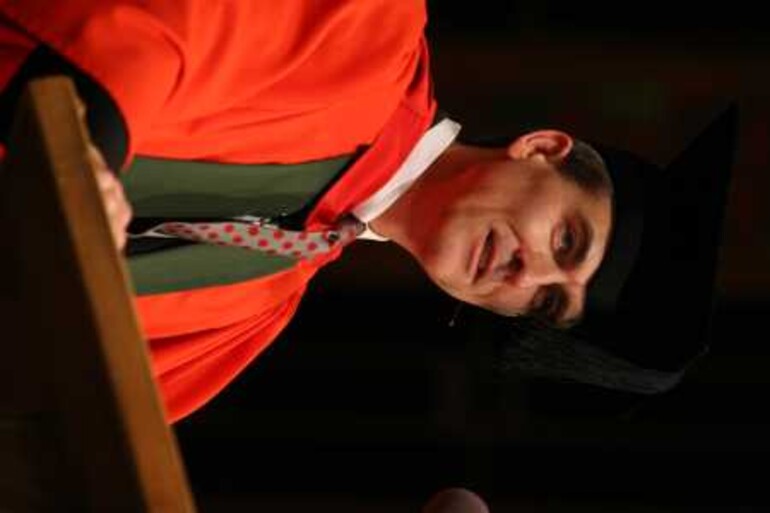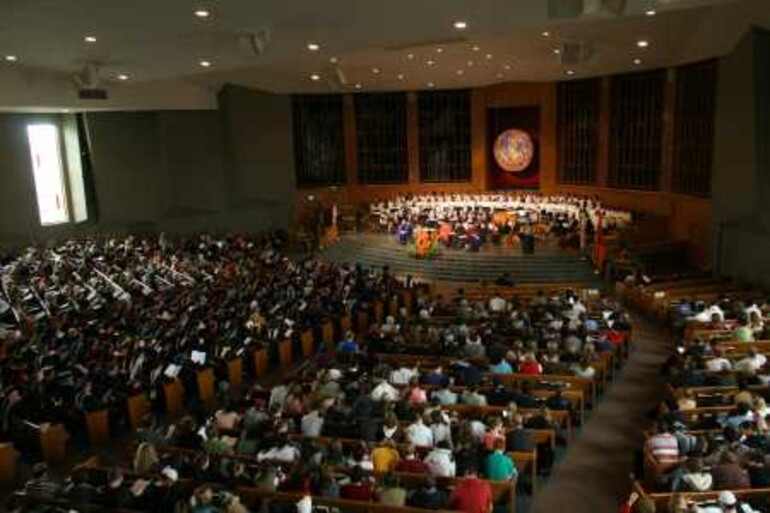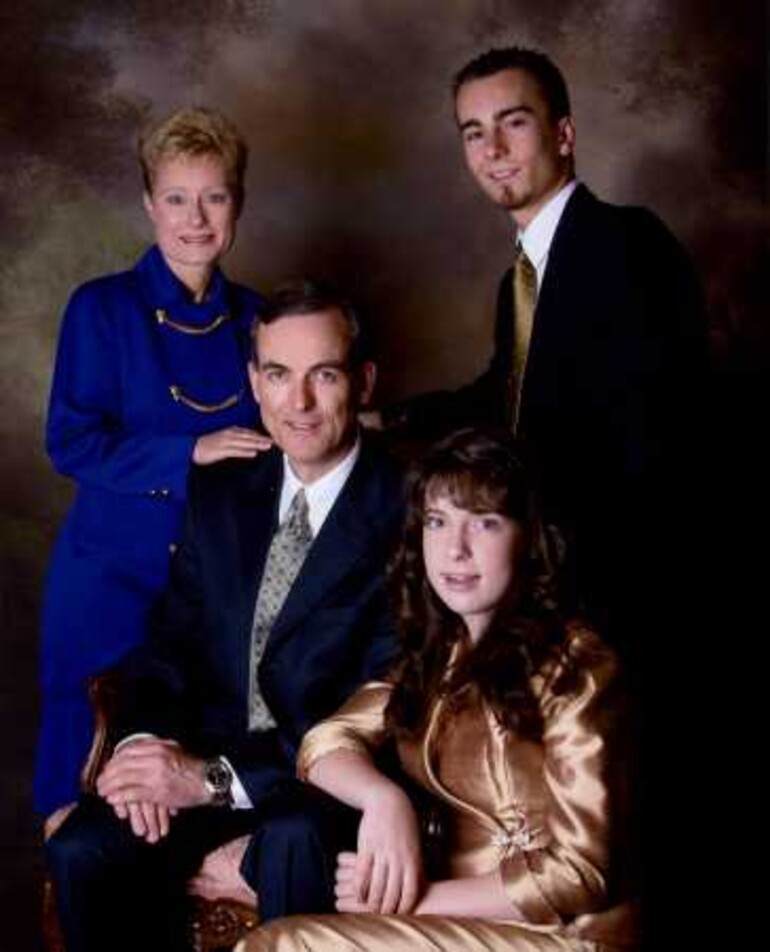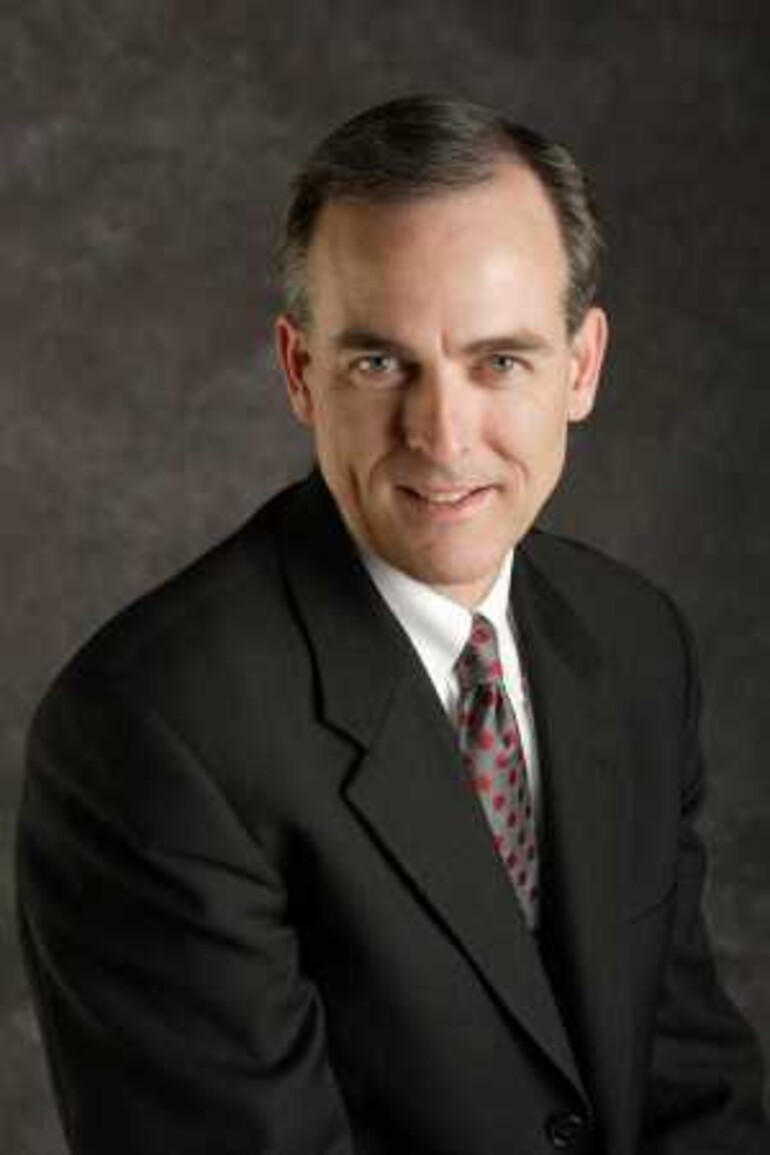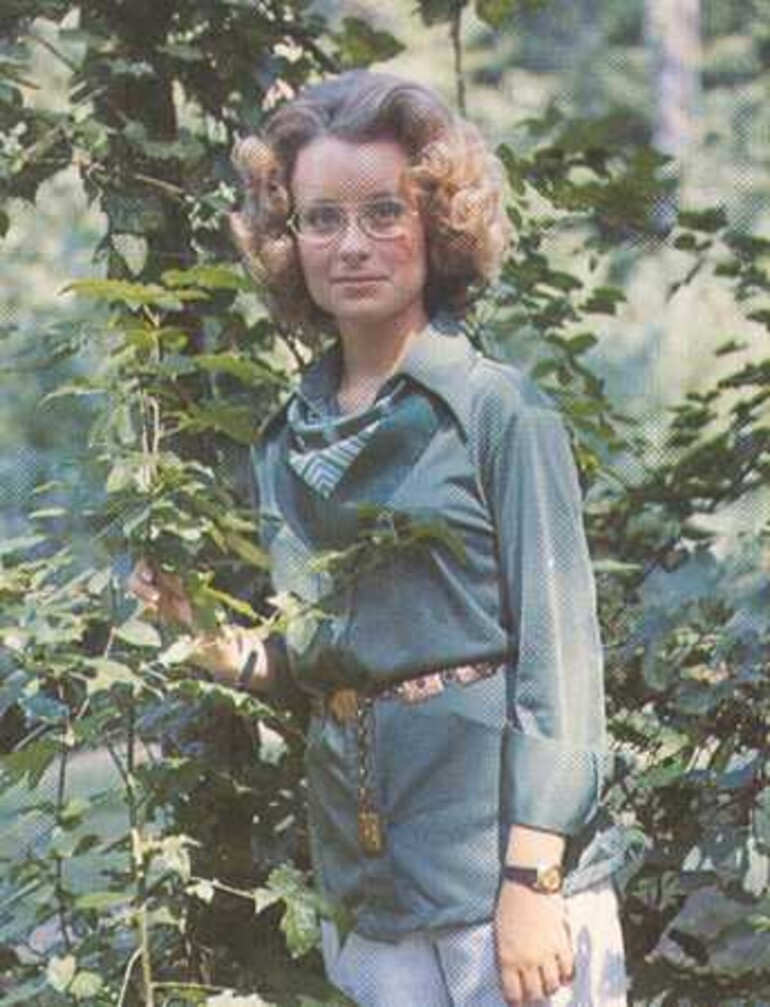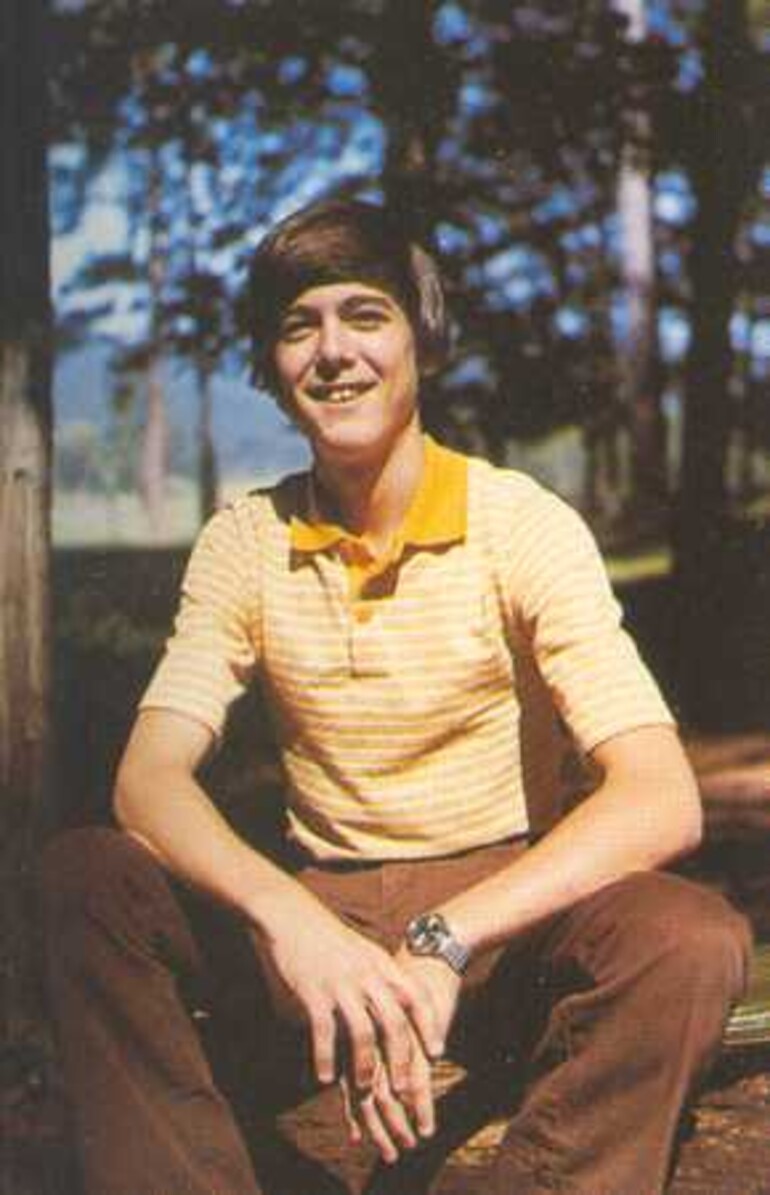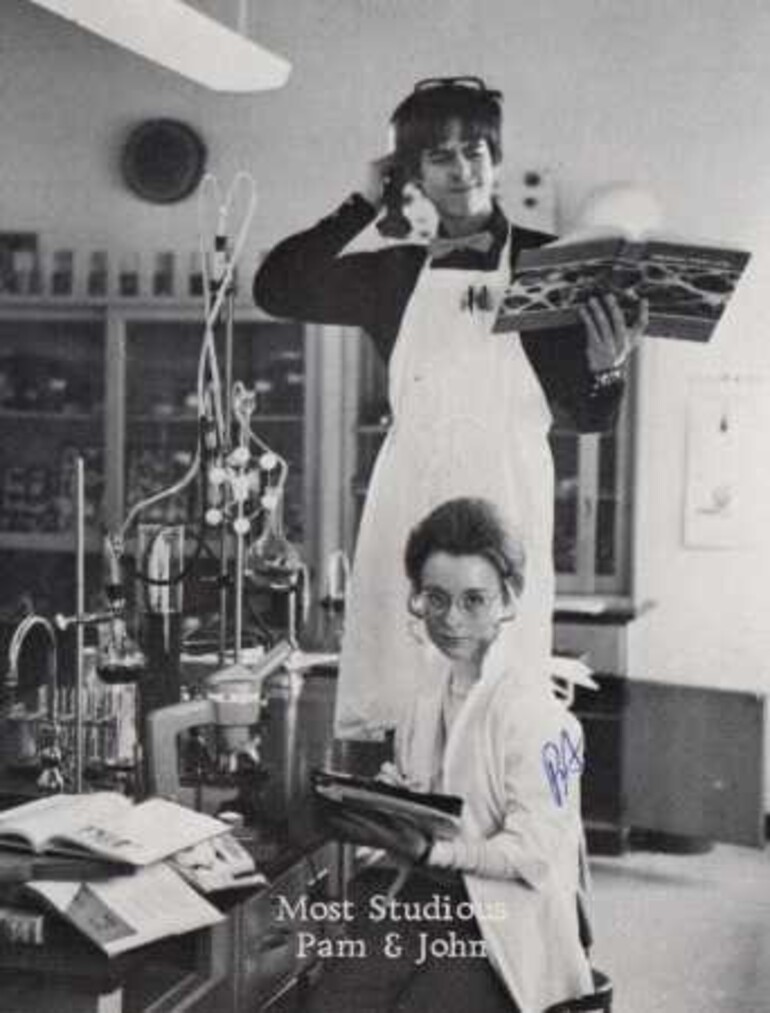As Walla Walla College undergoes several changes, a new president provides a link to the past and casts a vision for the future.
In an old office, books, papers and boxes lay in various stages of unpacking and repacking. A new office sits empty in a brand-new building. For Walla Walla College (WWC), it’s a new president, a new Administration Building. A fresh slate, a new beginning—yet one filled with the history and stories of the past.
And the story of John K. McVay’s past has become the story of his present.
Although he never attended classes here, it’s a homecoming for WWC’s 23rd president. His father, Ken, and brother, Bill, both graduated from WWC.
“Both my father and brother revered this place,” he says. “For my father, Walla Walla College was a sacred place where God’s presence invaded his life and where he sat in awe at the feet of Spirit-inspired teachers. Pull out all the metaphors of grandeur, greatness, true depth, spirituality, and joy, and load them onto the name. That’s what it was like in our family when you said ‘Walla Walla College.’”
To be president of an institution that played so prominently in family history provides a measure of personal satisfaction and completion, McVay says. “I’m surprised to be given this type of opportunity, but thrilled to see this story continue.”
The story begins in Meade, Washington, with McVay Brothers Roofing. Six McVay brothers founded the company, still in existence today, after their father died. One day, the next to the youngest son Kenneth broke his arm in a fall. During his recovery he stayed with his brother, Jewel, and was tended by Blanche, an Adventist girl working in Jewel’s home.
“Apparently he liked the care,” says McVay. “They fell in love, he became an Adventist, and they got married,” and later became John McVay’s parents.
After his stint as a World War II Army medic, Kenneth and Blanche McVay built a house in College Place, where they lived while Kenneth attended WWC, supported by his wife and five brothers. He graduated in 1950 with a degree in biblical languages and was called to pastor in Oregon, where John Kenneth McVay was born in 1958. Several years later they moved to Texas, then Georgia, then Tennessee.
“I did much of my growing up elsewhere,” McVay says. “But the Northwest was always home, and we would come back many summers to visit family and church members.”
Although his family roots were at WWC, McVay chose to attend Southern Adventist University (SAU). After completing his coursework in three years and spending another as a task force worker in Iowa, McVay graduated with a bachelor’s degree in theology.
Here the story of John becomes the story of John and Pam.
A self-described “pastor’s kid,” the future Mrs. McVay grew up in the Georgia-Cumberland Conference, which includes Georgia, west North Carolina and east Tennessee.
John and Pam Aalborg became friends at Georgia-Cumberland Academy and began dating at age 16.
“I had attended Georgia-Cumberland Academy for only two weeks when I told my mother, ‘John McVay is the guy I want to marry someday,’” Pam says. “At 16, I suppose this was a rather bold statement, but six years later he did become my husband!”
Married on May 4, 1980, two weeks after graduating from college, the couple moved to Andrews University so John could attend seminary. The couple spent the last semester of seminary training at England’s Newbold College. After the semester ended, they bought two-week Eurorail passes. “It was great fun,” says McVay. “We were just two kids with backpacks and boots, and we had first-class tickets. They kept trying to throw us out of our car.”
After seminary, John and Pam were called to pastor in Douglasville, Georgia, where they “worked their socks off for several years,” especially since shortly after their arrival the senior pastor left, and McVay was asked to take his place.
In 1985, they moved to Angwin, California, where McVay taught at Pacific Union College (PUC), chaired the religion department for several years, and served as senior pastor of the PUC Church for parts of two school years. In the middle of it all, John completed his doctoral studies at England’s Sheffield University in 1995.
Malcolm Maxwell, PUC former president, remembers that time well. “John was very busy then, teaching, pastoring, finishing his dissertation and enjoying his family. And they were a delightful family,” Maxwell recalls. “They lived directly across the street from us in Angwin, and we loved to look out our front window and watch the kids play.”
In addition, McVay had a significant influence on the campus, says Maxwell. “John was popular with the students. They knew they could always drop by and see him. He was also a very competent professor, and the students felt that their time in class was well-spent.”
After 13 years, McVay was called again—this time to return to the Seventh-day Adventist Theological Seminary at Andrews University as associate dean and professor of New Testament studies. Two years later he became dean at the seminary, which is where he stayed until his journey home to WWC.
“He's the same at 48 as he was at 16. His spirituality, leadership and interpersonal skills have grown and developed, but he’s always had those strong qualities,” says Pam McVay.
To his wife, McVay is full of contradictions that make him perfect for such a nuanced position. “John comes with a terrific set of skills. He’s not just the head, but also the heart,” she says. “He’s a great administrator, but he can also preach. John is a visionary and can see the big picture, but he’s also good at details.”
Pam, an obstetrics nurse, had never visited the campus before. “I’ve been to many other Adventist campuses in the world,” she says. “But I’d never been to Walla Walla College.” Still, it feels familiar. “Within a short time of stepping onto the campus, we met people who knew friends of ours, or people we worked with, or that we have a connection with. The Adventist family continues.”
Marshall, 19, is a freshman theology major at WWC. Like his father, he has always wanted to be a pastor, a desire that perhaps became stronger as he “grew up at the seminary,” says his mother.
Until now both McVay children attended home-school, providing flexibility to match their parents’ jobs. “With Andrews University and the seminary being the international hub for theology, we have had the opportunity to travel the world together,” Pam says. “It’s been great for the kids. Right now, Marshall is taking an art class and he’s already seen, in person, all the things they’re learning about in class. They’ve had such a rich cultural experience.”
In fact, this year 14-year-old Macy is studying German at Bogenhoffen in Austria, one of the places John and Pam haven’t yet visited.
When it comes to other interests, “I do a bit of everything,” McVay says, “but I’m happiest when I can put on my blue jeans and hiking boots and head out. It’s an interest that I share with my son, as well as with Pam and Macy, although more begrudgingly on their part.” He’s looking forward to spending time in the Blue Mountains, a nice change after the flatlands of Michigan.
Again a man of contradictions, McVay says he also needs to spend time indoors, researching and writing. “It helps keep me sane, and lends a certain substance or purpose to my life.” His area of focus is in New Testament studies, with an emphasis in the Pauline Epistles. His love of scholarly ventures is evident by the high volume of speaking engagements attended and articles penned in recent years.
“I admire his leadership ability and his scholarly commitment,” Jon Dybdahl, recently retired WWC president, commented during McVay’s inauguration in November. “WWC cares deeply about academic excellence, and is pleased when her president not only espouses that ideal, but embodies it as well. Dr. McVay is part of that fine tradition.”
Although familiar in some ways, McVay is treading into new territory at WWC, and not all of it is easy ground.
Only in office for a few weeks, McVay faced a challenge when approached about the possibility of changing the institution’s name to reflect its university status.
However, it all came together October 1, 2006, when the WWC constituency voted to change the school’s name to Walla Walla University (see story on page 9). “The change in the name doesn’t mean we will suddenly become a big research university, where there is increased distance between teachers and students. That’s not what we are about,” stresses McVay. “The updating of the name is simply to bring the way we refer to ourselves in line with our identity. We are excited about our future, and the opportunities that lie ahead for our university.”
In addition to the name change, McVay is now facing the challenge of replacing several members of the administrative team whose years of service had come to an end. Although WWC staff have stepped up to fill those roles, two positions have still to be permanently filled.
The new president says he is used to administrative challenges after his time at the seminary. Enrolling between 700 and 850 students each year, the institution employs nearly 40 full-time faculty and many adjunct professors and staff members. Aside from the main campus, numerous international campuses require management. There, in the midst of such responsibility, McVay honed his skills as a leader and visionary.
“John is a very able and competent leader and administrator,” says Clifford Jones, who worked with McVay at the seminary for six years. “He is also a natural at interpersonal relationships. He’s a warm, engaging person who knows how to lift others up and make them feel good about their contribution to the institution. You are blessed to have him at Walla Walla College.”
Although he’s lauded for his ability to relate to others, McVay says his biggest adjustment here has been entering the world of undergraduate students. “They’re a tremendously wonderful group. But my challenge is that for the last eight years I’ve been hanging around graduate students, who are at a different stage of life,” McVay says.
“If there is a learning curve, it’s entering into that otherness of the undergraduate student population and learning their world afresh. I’m learning their concerns, their interests, their lifestyle, and how they live out their Christian discipleship. It’s not that I’m finding it difficult or unpleasant. It’s really quite a joy,” he adds. “I’m just having to acquire a new vocabulary. But I needed an update, so now I’m re-engaging a new culture and that is being quite an invigorating process.”
That learning curve has not halted his big plans for the student body at WWC.
“Second-rate academics will offer no note of praise to our Creator. The fact that our education is grounded in commitment to Christ and to Scripture doesn’t let us off the hook in terms of academic excellence. If anything, it should lead to broad-based excellence in thought and learning,” he says.
One future goal has the new president on the edge of his seat with excitement. “In Christian education as a whole, we have done an excellent job of providing service and outreach opportunities for our young people, and a variety of worship and witnessing opportunities on our campuses,” he says. “But I think we haven’t done such a good job in ensuring that when our students walk on our campus, they are accompanied in an intentional journey of spiritual formation, Christian discipleship and faith nurture.”
“I think some Adventist institution ought to wake up and craft a more intentional model, then put it into place and watch it work. We have work to do in that area, and I look forward to participating in developing a vigorous model on this campus. It’s a dream that has been growing in my heart for a long time.”
During his inaugural address McVay laid out “four rather daring prophecies” about WWC, which he called “elements of the bold vision for its future.” Noting the change in reference to WWC’s new name, Walla Walla University, those elements can be summed up as:
WWU will continue to treasure and explore its past, the values on which the institution was founded, seeking and finding guiding principles and ideas there that remain insightful and formative as we confront the changing landscape of a very different era.
WWU will practice careful stewardship, tending with care the resources offered to its keeping, in service of its God-ordained mission to offer excellent education.
WWU will take seriously the central issue of the character, integrity and faith of its students. We will hone our skills in faith nurture, spiritual formation and Christian discipleship.
WWU will steadfastly resist becoming an end in itself. It will seek to give itself in ministry to its students and to this world of ours.
It’s a story come full circle, but in no way close to its end. “My father had an endless mental file of stories from his years here, ones that he would trot out with some regularity…as you listened to the stories, you could tell that he loved this place.”
“We each have such stories. Our history is full of them. In each such story echoes that grace-filled message: The presence of the Lord is in this place. I am honored to serve my father’s school as we enter into the bold vision God has laid before us.”





